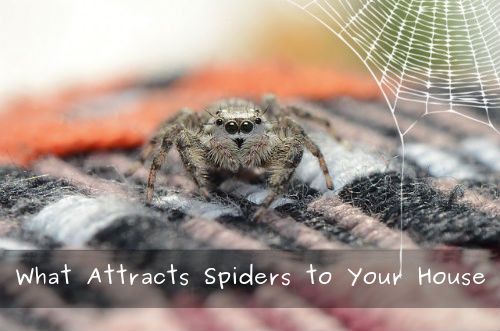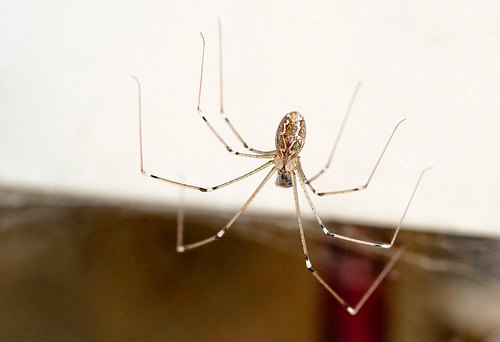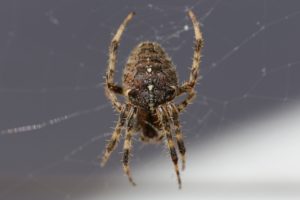
020 3404 5177

The things that attract spiders are too many. We are frequently being asked if spiders are attracted to light or dark but the list of things that may cause spider infestation is very long.
So, what is so tempting that attracts spiders namely to your house? Spiders are like any other creature, they need food and shelter. Many species have adapted to the environment indoors. One thing that draws spiders in your home is a plentiful supply of food. The eight-legged predators feast upon insects, either by catching them in nets, hunting or ambushing them. That being said, spiders are excellent pest controllers themselves and often used in biological pest control when it comes to crops and gardens. So an effective way to keep spiders at bay is to cut their food supply. In other words, you better lay waste upon any insects that dare to roam your household. Or if your aim is to attract spiders, invite some flies in and they’ll soon join the party.
Spiders are mainly attracted to the insects in your home, which are their primary food source. But what other factors make them crawl into your house or flat and become your “roommates”?

In conclusion, what mainly attracts spiders to your bedroom is insects they feed off. Your home provides many different hiding spots for spiders. Despite recent reports, it’s very rare for spiders in the UK to be dangerous to humans. On the whole, they’re more of a benefit as they eat other insects that do pose a threat to human health. But if you really don’t like them, it is fairly easy to reduce their numbers in your home – either follow our simple tips or give us a call and we’ll take care of the problem for you.
It’s a common myth that spiders migrate inside your home once it gets chilly. Household spiders are adjusted to living indoors and tend to prefer dark, narrow spaces with less to none human activity, as they are very sensitive to movement. They lead quiet lives and love their privacy. Spiders don’t necessarily love a damp environment, it’s just the ideal setting for an abundance of insects, hence spider food. Some of them prefer damp conditions while others linger to dry environments.
You will be surprised to learn that ordinary insecticides aren’t all that effective against spiders.So what on Earth kills spiders? If you have to use a chemical to kill spiders, choose one especially formulated for the job. Panther Pest Control can help you find safe chemical solutions to this type of problem if needed.
No, not at all. Spiders can’t digest human or pet food, so it wouldn’t even cross their minds to try. They prefer domestic pests like cockroaches, earwigs or clothes moths and other.

The might not even know you exist until you become a threat to them. Spiders are not attracted to humans per say, rather they might be attracted to the warmth we emit. Or as in most cases, they just accidentally end up on us coming from the ceiling or anywhere above head height where they’ve spun their webs. How does that happen? A curious spider-related fact is they don’t put all their energy into producing brand new silk every time. They recycle their silk by eating it. So, no, they didn’t want to attack you or take a walk along your body. You just interrupted their recycling process and their silk got “glued” on you when you were passing by.
There are a few things you can do in order to spider-proof your home and prevent the eight-legged rascals from invading your home and get all cosy in the ceiling corners of every room.
Regular cleaning will do much to keep their numbers down. Cleaning and removing their webs will also get rid of their eggs. If you live in a modern home, it may be perfectly practical to seal every tiny crevice and hole. In an older home, this may be more difficult, if not impossible. If you buy second-hand furniture and there happens to be a spider egg sac in it before you know where you are you’ve increased the spider population of your home by several hundred. This is a very strong argument in favour of making sure that if you do buy second-hand furniture, you have to clean it or get it professionally cleaned meticulously. If at all possible, do this before you bring the item into the house. If none of these tips works for you and you still struggle with a spider infestation in your home, don’t hesitate to contact us for efficient spider pest control.
Though spiders can’t contaminate your home heavily, it’s clever to disinfect your property once you get rid of the arachnids. It’s never completely clear where they’ve been before and what bacteria the spiders might have brought into the place you live. Make sure to thoroughly clean your home.
For any urgent matters or more information on pest control contact us at any time.